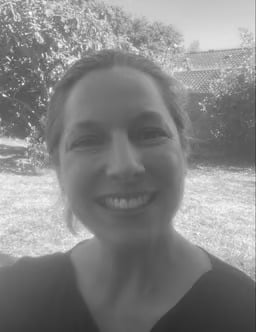Gas Volumes (Oxford AQA IGCSE Chemistry)
Revision Note

Author
Philippa PlattExpertise
Chemistry
Calculating Gas Volumes
At room temperature and pressure, the volume occupied by one mole of any gas was found to be 24 dm3 or 24,000 cm3
This is known as the molar gas volume at rtp:
RTP stands for room temperature and pressure
From the molar gas volume the following formula triangle can be derived by:
Formula triangle for calculating molar gas volume in dm3

Formula triangle for calculating molar gas volume in cm3

Worked Example
Convert the following moles of gases at rtp into volume (dm3)
3 moles of hydrogen
0.25 moles of carbon dioxide
5.4 moles of oxygen
0.02 moles ammonia
Answer:
Use the equation:
volume = moles x 24
3 x 24 = 72 dm3
0.25 x 24 = 6 dm3
5.4 x 24 = 129. 6 dm3
0.02 x 24 = 0.48 dm3
Worked Example
Convert the following volumes of gases at rtp into moles
225.6 dm3 methane
7.2 dm3 carbon monoxide
960 cm3 sulfur dioxide
1200 cm3 of oxygen
Answer:
Use the equation :
moles = volume (dm3) ÷ 24
OR
moles = volume (cm3) ÷ 24 000
225.6 ÷ 24 = 9.4 mols
7.2 ÷ 24 = 0.3 mols
960 ÷ 24 000 = 0.04 mols
1200 ÷ 24 000 = 0.05 mols

You've read 0 of your 0 free revision notes
Get unlimited access
to absolutely everything:
- Downloadable PDFs
- Unlimited Revision Notes
- Topic Questions
- Past Papers
- Model Answers
- Videos (Maths and Science)
Did this page help you?